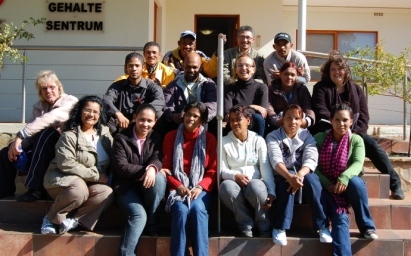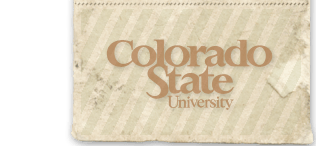Center for Fair & Alternative Trade
Participant Action Research on Inequality & Fair Trade

Posted: Spring 2011.
CFAT’s newest project investigates Fair Trade in South Africa and improves market access for emerging farmers in the Rooibos tea sector. This collaborative effort is developing an innovative model for advancing participatory action research and addressing entrenched inequalities.
Fair Trade’s rapid growth offers the potential for empowering Rooibos (red bush) tea producers in South Africa via access to high-value markets and support for community development and sustainable production. To date, however, little is known about how Fair Trade and other alternative markets can assist emerging farmers and address race, class, and gender inequalities. This project explores how emerging farmers can strengthen producer organizations, adopt new production strategies, and better access high-value markets.
CFAT is working with South African partners, the Institute for Poverty, Land, and Agrarian Studies (PLAAS) and Sandra Kruger and Associates (SKA), in this action research project. This collaboration between academics and practitioners is providing farmer training and building organizational capacity by developing groups for emerging and women farmers within the Rooibos Council. The project actively engages key stakeholders, including Rooibos farmers, rural community members, and other industry and rural development actors.
Working in the remote Greater Cederberg Biodiversity Corridor, this project seeks to ensure emerging farmer empowerment via participatory market access training. The research synthesizes theory and methods drawn from commodity network analysis, socio-political theories of power, the human capabilities approach, participatory action research, and outcome-based non-formal education.
Preliminary community workshops help farmers recognize and enhance their capabilities and pursue gender equitable leadership elections. Through active collaboration, we develop training modules and training-of-trainer sessions in areas identified as most critical to improving market access, including record keeping, communication, financial management, and Rooibos standards and certification. Farmer leaders are also trained and engaged in field research, learning how to gather data and use their findings to inform strategic decisions. Leaders then engage in industry networking activities to disseminate findings, and organize community workshops, using the training modules and their new skills to enhance emerging farmer market awareness and involvement.
This CFAT project will provide much needed information about the impact of historical inequalities on farmers’ integration into expanding Fair Trade networks in South Africa as well as provide an integrated methodological framework for holistic producer support. Project findings will be broadly disseminated to academics, policy-makers, practitioners, and concerned citizens through a range of publications and presentations. The CFAT team is led by its Co-Directors, Laura Raynolds (PI) and Douglas Murray (Co-PI), with CFAT graduate student Jennifer Keahey taking the lead on field research in South Africa which will provide the basis for her PhD. dissertation. Funding for this project is generously provided by the United States Agency for International Development, Horticulture Collaborative Research Support Program.


